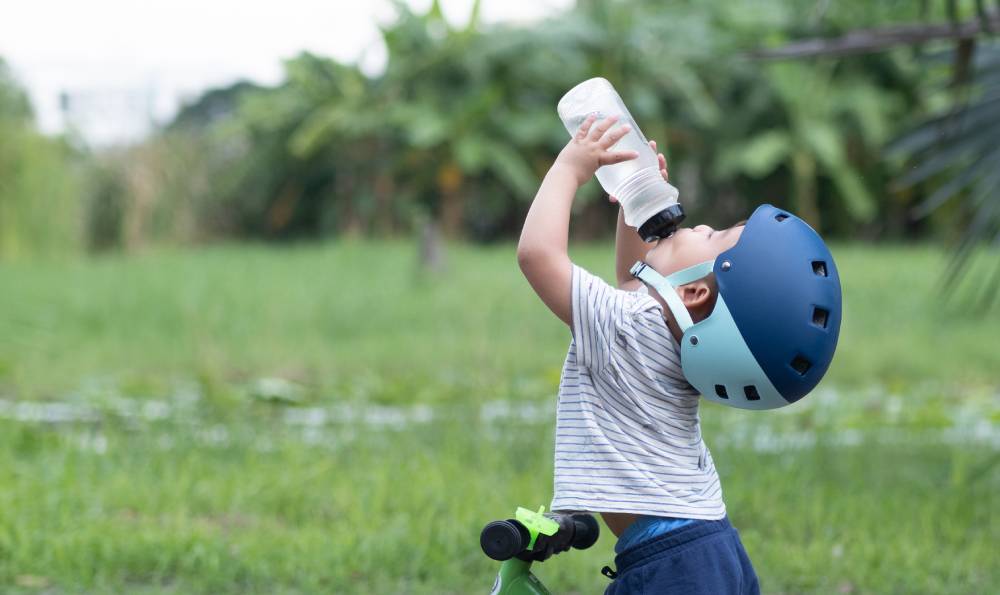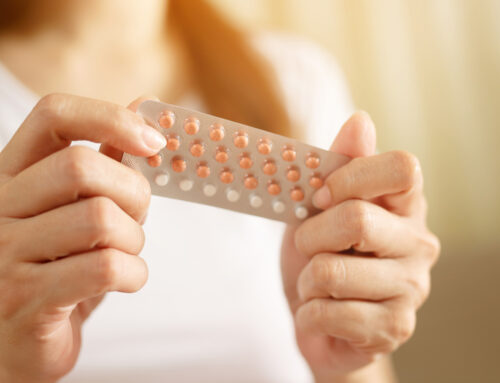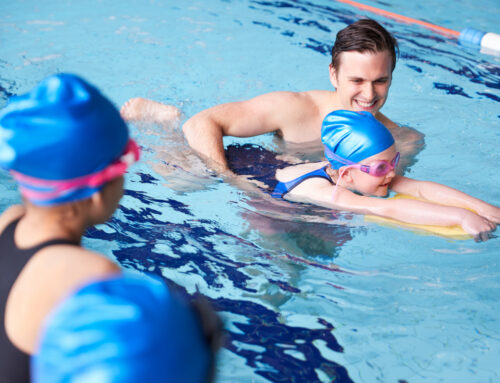
With Summer just around the corner, these top eight safety tips for parents and children are recommended to ensure an accident-free summer vacation.
- Sunscreen: Use sunscreen to avoid cumulative sun damage to your child’s skin. It should be used to protect against sunburn and skin cancer and not as a reason to stay in the sun longer.
- Use a sunscreen that is SPF 30 or greater, Para-Aminobenzoic Acid (PABA) free, water resistant and hypoallergenic on all children age 6 months or older.
- Apply at least 15 to 30 minutes prior to going outside and reapply every 2 hours.
- A good rule of thumb is to use an ounce of sunscreen to cover exposed areas of skin.
- Even if water resistant, sunscreen should be reapplied after your child exits a pool or other body of water.
- Check to make sure the product you are using is not expired or older than 3 years.
- Water safety and water activities: Before going out on a boat or watercraft, always check the weather forecast. When boarding any vessel have all children wear a Coast Guard approved life jacket regardless of their swimming ability and even if the water is calm. If you are at a pool, lake, beach, or other body of water, designate an adult to serve as an observer. According to the Centers for Disease Control (CDC), Florida has the highest unintentional drowning death rate of 3.19 per 100,000 population among children 0 to 9 years of age in comparison with other states. For more detailed advice about pool and swimming safety please refer to this previous post at toplinemd.com/blog/summer-essentials-water-safety-and-swimming-lessons
- Stay hydrated: If playing outside in the summer heat, make sure your child takes frequent breaks for water and healthy snacks. Make it fun and have them decorate their reusable water bottles. Signs of dehydration in infants may be simply fewer than their normal 6 to 8 wet diapers per day or lack of tears when they cry. In older children it may be darker colored urine, dry lips, flushed skin, or being sleepy. If your child is vigorously exercising, and is 9 to 12 years of age, they need to consume 3 to 8 ounces of water every 20 minutes. Teenagers would need to drink 34 to 50 ounces an hour. If vigorous exercise extends beyond 1 hour, then your child may need supplementation with electrolyte beverages such as Gatorade. However, the mainstay of hydration should be water.
- Tips to beat the heat: Dress with light-colored, loose-fitting clothing. Note that darker clothing can sometimes provide slightly better sun protection but the loose-fitting nature of the clothing is more important. Clothing made with just one layer of absorbent material can help maximize the evaporation of sweat, which has a cooling effect. Plan for extra rest time as heat can make your child more tired and irritable. If your child feels hot maybe give them a cool bath or mist them with water. Swimming is another great way to cool down.
- “Look before you lock”: Never leave a child alone in a car and always check to make sure any car seats are empty before exiting your vehicle. It is a crime in the state of Florida to leave a child unattended or unsupervised in a car for more than 15 minutes with the motor off and the keys removed from the ignition. It is also a crime to leave the child unattended for any length of time while the car is running, while the child is in distress, or when the health of the child is in danger. Cracking the window does little to lower the temperature in a car that is not running. Bottom line is just do not leave them unattended. In just 10 minutes, the temperature inside of a vehicle can increase by 20 degrees and become hot enough to be deadly. If you see a child inside a locked car, you are protected under Florida law to respond. If possible, police say you should open the door, take the child out of the car, and call 911. If the door is locked, grab a pointed object like a rock and go to the opposite window of where the child is and hit the corner of the window to break it in. As a driver you can use post-it notes on the dashboard to remind you to check the back seat. There are also a variety of devices available to prevent you from leaving kids in the car. You can compare some of this technology at safewise.com/car-seat-alarm.
- Fireworks: Kids love fireworks, but my advice is to leave it to the experts.
- Professional displays are going to be more spectacular than your backyard fireworks.
- View them from a safe distance of at least 500 feet or more from the launching site to protect your child’s hearing.
- Have your children use glowsticks or flags instead of sparklers, which burn at 2000 degrees Fahrenheit. Sparklers can melt some metals, cause 3rd degree burns, burn clothing, and cause eye injuries.
- In 2020, there were 900 emergency room visits from sparkler accidents and 1600 visits from firecrackers accidents.
- Fire safety: Children should not be left unattended near barbeque grills, campfires, or bonfires.
- Keep a fire extinguisher or bucket of water near an area with an open fire.
- If your child is burned:
- Rinse area with cool water for 5 minutes and do not use ice.
- Cover the burn with a clean bandage and some Polysporin ointment or Silvadene cream.
- If the burn begins to blister or looks leathery, contact your pediatrician for further instructions or head to the emergency room.
- Bug safety: Here are some tips to decrease bug bites and bee stings.
- Eliminate stagnant or standing water on your property that might collect in empty buckets, bird baths, or tires.
- Avoid using perfumes, scented soaps, or hairspray on your child.
- Repair broken window screens.
- When outside in the evenings, children can wear light-weight long-sleeve shirts, long pants, and socks to protect against bites.
- The American Academy of Pediatrics (AAP) and the CDC recommend that children older than 2 months of age use 10% to 30% DEET bug repellant products. Ten percent DEET provides protection for about 2 hours, and 30% protects for about 5 hours. Choose the lowest concentration that will provide the required length of protection.
- Of course, DEET products should be washed off thoroughly once your child is back indoors.
We hope you find these eight tips helpful in planning a safe summer with your family. If you are interested in more information on how to plan for an amazing summer with your family and would like to schedule an appointment with a TopLine MD Alliance affiliated Pediatrician, click on the “Find a Provider’ button in the top right corner of this webpage.
 Dr. Lawrence Bergman is a board-certified, solo Pediatrician with Bergman Pediatrics of Palm Beach County.
Dr. Lawrence Bergman is a board-certified, solo Pediatrician with Bergman Pediatrics of Palm Beach County.
The TopLine MD Alliance is an association of independent physicians and medical practice groups who are committed to providing a higher standard of healthcare services. The members of the TopLine MD Alliance have no legal or financial relationship with one another. The TopLine MD Alliance brand has no formal corporate, financial or legal ties to any of the affiliated physicians or practice groups.



